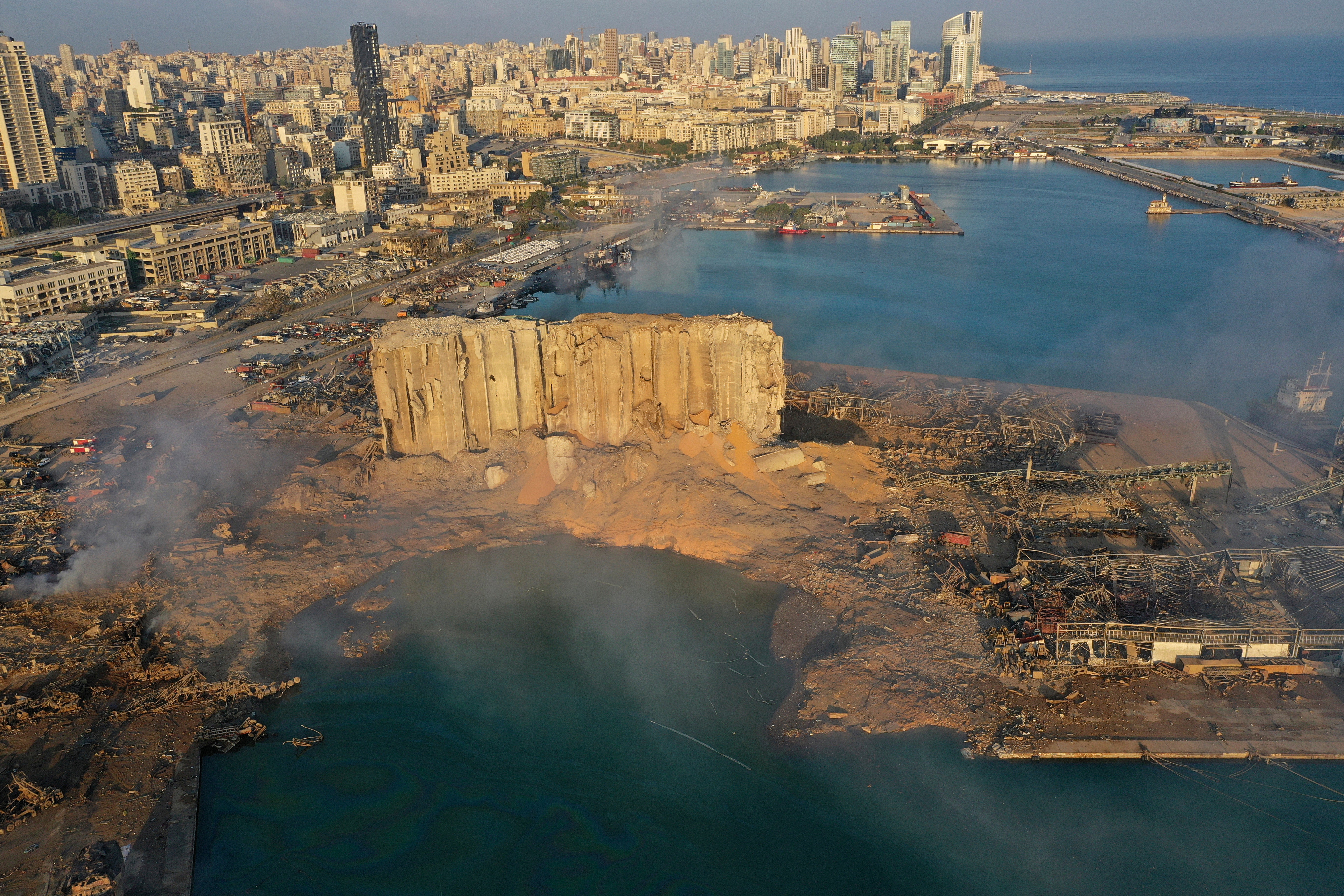Rights group: Lebanese officials failed to protect residents
An international human rights group says Lebanese officials knew of the risks posed by the highly explosive material stored at Beirut’s port and did nothing to protect the public against it

Senior Lebanese officials knew of the risks posed by the highly explosive material stored for years at Beirut’s port and did nothing to protect the public against it, an international human rights group said Tuesday.
In a report on last year's massive blast, Human Rights Watch said those same officials are now trying to thwart the investigation.
The report comes as Lebanon marks one year since the horrific Aug. 4 blast that ripped through Beirut killing at least 214 people, injuring more than 6,000 and destroying or damaging thousands of homes and businesses. The explosion was preceded by a huge fire at a port warehouse after hundreds of tons of improperly stored ammonium nitrates detonated.
A year later, the investigation has yet to answer questions such as who ordered the shipment of the chemicals and why officials ignored repeated internal warnings of their danger.
In the 650-page report titled “They Killed Us from the Inside,” the New York-based group published scores of documents and exchanges between Lebanese officials about the ammonium nitrates haphazardly stored for nearly six years at the port.
“The actions and omissions of Lebanese authorities created an unreasonable risk of life,” the report said, adding that under international human rights law, a state’s failure to act to prevent foreseeable risks to life is a violation of the right to life.
In addition, HRW said evidence strongly suggests some government officials foresaw the possible devastation from the nitrate's presence and tacitly accepted the risk. “Under domestic law, this could amount to the crime of homicide with probable intent, and/or unintentional homicide,” it added.
The report names senior leaders, including President Michel Aoun then-Prime Minister Hassan Diab a former Lebanese army chief, senior security officials and several ministers among others who were informed of risks posed by the nitrates in the middle of a densely populated commercial and residential area but failed to take the necessary actions to protect the public.
Lebanese officials have acknowledged they knew about the nitrates and either claim they pursued the matter after learning about it, or they say they didn't, because it was not within their jurisdiction.
HRW said a lack of judicial independence, constitution-imposed immunity for high-level officials, and a range of procedural and systemic flaws in the domestic investigation rendered it “incapable of credibly delivering justice.”
Survivors of the blast and families of the victims have been calling for an international investigation, saying they lack faith in the Lebanese judicial system.
HRW says the case for an “international investigation has only strengthened.”
Aya Majzoub, a researcher on Lebanon at HRW, said “all the individuals named in the report knew of the dangers posed by the material and had a responsibility to act and failed to act under international law."
“That’s a grave human rights violation. It’s a violation of one of the most basic rights, the right to life,” she told The Associated Press.
The Rhosus the ship that carried the 2,750 tons of ammonium nitrate to Lebanon in 2013, was supposedly sailing from the Georgian Black Sea port of Batumi and bound for the Mozambican port of Beira.
It made a stop in Beirut to try to earn extra money by taking on several pieces of heavy machinery. But that additional cargo proved too heavy for the Rhosus and the crew refused to take it on. The Rhosus was soon impounded by the Lebanese authorities for failing to pay port fees, and never left the port again.
HRW said questions remain whether the shipment was intended to reach Mozambique or whether “Beirut was the intended destination" all along. It said evidence currently available also indicates multiple Lebanese authorities were, at minimum, criminally negligent under Lebanese law in their handling of the Rhosus cargo.
Last month, Lebanon's lead investigating judge in the case, Tarek Bitar, announced he intends to pursue senior politicians, and former and current security chiefs in the case, and requested permission for their prosecution.
Those named in the probe — including the outgoing prime minister, lawmakers and top generals, have so far not shown up at the prosecutor’s office, citing that they either have immunity as members of parliament or need special permission from the prime minister or the interior minister to appear.
Bookmark popover
Removed from bookmarks